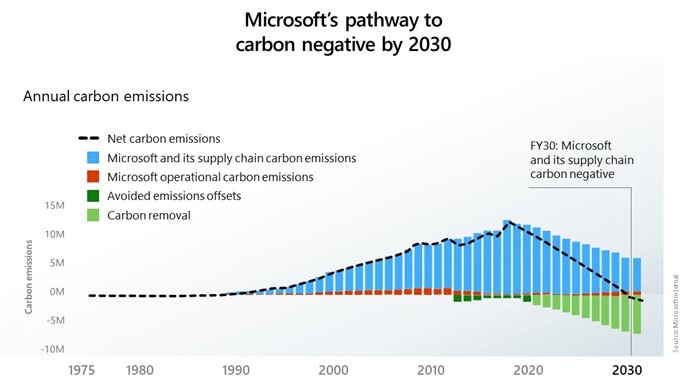
Todd Myers of the Washington Policy Center points to an abundance of technologies that can effectively reduce CO2 emissions but those are being intentionally overlooked by many politicians
Todd Myers
Washington Policy Center
A recent conversation with my sister (over beers) about how to address the risk from climate change gave me a clear sense of how confused the discussion about climate change is.

She asked about what it would cost to mitigate the impact of CO2 from her drive across the country to visit me. After calculating the gas her truck used pulling her trailer, I said it would cost about $20 to invest in projects that reduced the same amount of CO2 as she emitted on the round trip.
Her reaction was disbelief. She said that seemed too easy. Could it be true?
In fact, it is. There is an abundance of technologies that can effectively reduce CO2 emissions in the near future, but those are being intentionally overlooked by many politicians because the banal nature of the solutions doesn’t match the sensational language about the “climate crisis.”
The surprise of my sister – who is highly accomplished and intelligent – says a great deal about how needlessly difficult politicians make it to reduce the risk from climate change.
Investing in projects that either absorb atmospheric CO2 or reduce potential emissions is the approach used by Microsoft, Amazon, and other businesses that care about reducing the risk of climate change and regularly report progress toward their goals. Projects that reduce potential emissions include methane capture at landfills, which take the methane emitted by decomposing garbage and use it to generate power rather than allowing it to go into the atmosphere. Removing and storing atmospheric CO2, known as “carbon sequestration,” includes projects like regenerative agriculture which uses plant growth to store carbon in the soil, or geologic sequestration which uses machines to remove CO2 from the air and store it in geologic formations in the ground.
The cost for these types of projects can vary widely, but companies using these approaches look for projects that are 1) effective and 2) inexpensive. While both Amazon and Microsoft are reducing CO2 emissions from their operations and along the supply chain, they can only do so much before it becomes extremely expensive and counterproductive. So, they make up the difference between their CO2-reduction target and what they can do themselves by investing in CO2-reduction projects.

Here is how that plays out in the real world. This is Microsoft’s strategy to be carbon negative by 2030. Although they cut emissions from Microsoft and its supply chain roughly in half, a nearly equal amount of reductions from avoided emissions offsets carbon removal. The reason is simple. At some point, avoiding or removing CO2 is just less expensive than reducing energy use and associated business activities. The strategy makes some assumptions about technology and cost, but even if the ratio of direct reductions to investments in CO2-removal changes, the strategy is basically the same.
It could be that as we approach 2030, Microsoft will have picked all the low-hanging fruit and it will become more challenging to avoid or remove CO2. It could also be that technological advances push costs down further and increase opportunities to reduce emissions.
I am not surprised my sister was shocked at the low cost of mitigating her trip’s CO2 emissions. The shrill rhetoric we are fed from politicians and left-wing environmental activists is that climate change requires a kind of religious, sacrificial atonement for our sins. It is not enough to reduce CO2 emissions and help the planet. It must be painful.
For them, addressing climate change requires a massive societal transformation with painful trade-offs to adequately deal with the existential crisis we are at fault for creating. This thinking leads politicians to overlook mundane but meaningful solutions in favor of those that are visibly dramatic and transform society – even when they are ineffective or needlessly expensive.
For example, under Washington state’s new climate law, Microsoft and Amazon are required to reduce CO2 emissions and pay a tax (primarily in the form of higher energy prices) for each metric ton of CO2 they emit. Companies covered by the law are allowed to reduce a small amount of emissions by investing in CO2-reduction projects like Microsoft and Amazon are doing. But that is capped at three percent in the early years, and then banned entirely. As far as complying with the state’s climate law, these projects will soon be illegal.
That makes no sense at all. The cost-benefit analysis for the CO2 tax completed by the Department of Ecology found that allowing even a tiny amount of CO2-reduction projects would reduce the cost to meet the CO2 targets by nearly half-a-billion dollars. And yet, legislators chose the more expensive and bureaucratic approach, prioritizing force over innovation.
Washington state residents will pay a needlessly high price to reduce emissions. Microsoft and Amazon may end up paying twice for the same CO2 emissions – once in the form of a tax to the state and again for CO2-reduction projects to remove the same amount of emissions from the atmosphere. This does nothing extra for the planet. It just increases taxes the government will collect from businesses and the public.
It shouldn’t be that my sister – or me, or anyone else – are reducing CO2 emissions more effectively than the state of Washington with all the resources it has available. And yet, that is exactly where we are.
Inaccurate and unscientific political rhetoric is not only wasting taxes on projects that do little to reduce CO2 emissions. It is also poisoning the well of personal and private action, making meaningful action seem impossible or, worse, actually prohibiting effective CO2 reduction efforts.
Todd Myers is the director of the Center for the Environment at the Washington Policy Center.
Also read:
- Opinion: Employers shouldn’t pay workers not to work: Paying people to strike should be a union’s jobElizabeth New of the Washington Policy Center argues that Senate Bill 5041 would burden employers and taxpayers by using unemployment funds to pay striking workers instead of requiring unions to support their members.
- POLL: Should Washington Raise the 1% Cap on Property Tax Increases?Clark County Today’s weekly poll asks whether Washington lawmakers should raise the current 1% cap on annual property tax increases.
- Letter: The more you knowCamas resident Anna Miller criticizes a recent remark by Rep. Jasmine Crockett as racist and demeaning, and outlines Republican contributions to civil rights history in her letter to the editor.
- Letter: City vehicles speeding on the highwaysVancouver resident Peter Bracchi raises concerns about excessive speeding by city-owned vehicles, based on GPS data received through a FOIA request.
- Opinion: The stage is set for a battle royaleRep. John Ley outlines key legislative battles in Olympia, raising concerns about tax hikes, tolling, and spending priorities in Washington state.











Wait. I am confused? So human-induced climate change is real now? I thought is was fake?